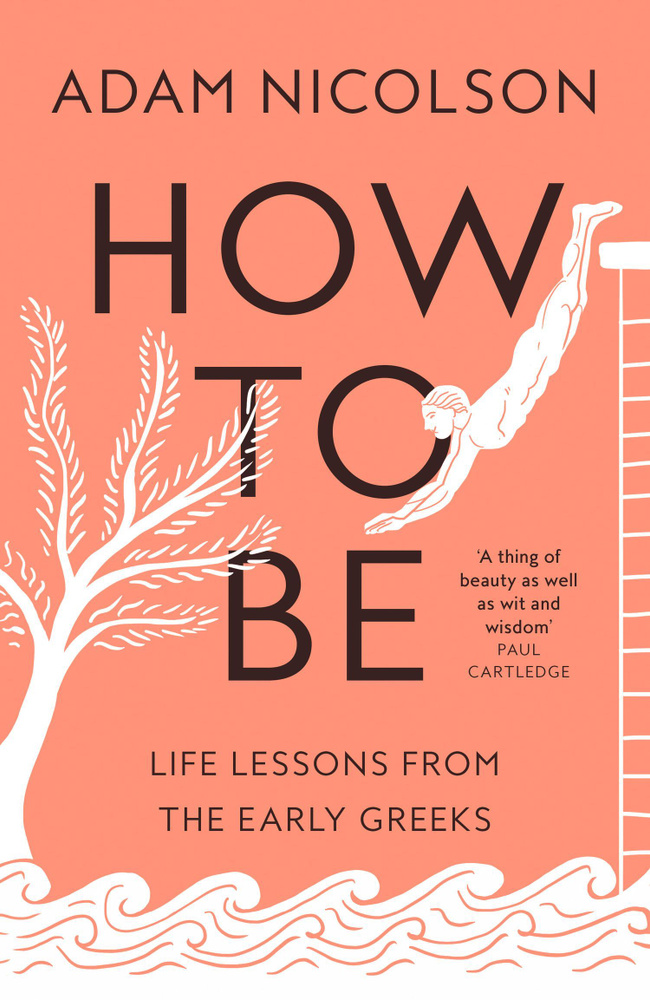- Книги
- Литература на иностранных языках
- Английский язык
- Нехудожественная литература




−21%
How to Be. Life Lessons from the Early Greeks / Книга на Английском | Nicolson Adam
Тип книги:
Другие издания
О товаре
Перейти к описанию
Автор
Издательство
Серия
Год выпуска
2023
Тип бумаги в книге
Типографская
О книге
Какова природа вещей? Как найти свой путь в жизни? Что такое справедливость? Как быть самим собой? Как нам стоит относиться друг к другу?
Много столетий тому назад мировоззрение людей формировали бог
173,70 BYN 220,50 BYN
Часто задаваемые вопросы
Описание
Какова природа вещей? Как найти свой путь в жизни? Что такое справедливость? Как быть самим собой? Как нам стоит относиться друг к другу?
Много столетий тому назад мировоззрение людей формировали боги-цари и их жрецы, а жизнью управляли воображаемые метафизические существа. Однако 2500 лет назад в нескольких портовых городках на побережье Средиземного моря мужчины и женщины решили отбросить все навязанные им представления о мире и самостоятельно разгадать загадки нашего мира.
Так зародилась философия. Через путешествия Одиссея Гомер показывал, как человек может искать свой путь в жизни. Гераклит Эфесский первым озвучил мысль о взаимосвязанности вещей во вселенной. Ксенофан Колофонский писал об учтивости. На родине Сапфо и Алкея поэты задавались вопросом: как оставаться верным самому себе? Пифагор Самосский размышлял о бессмертии души. Его идеи дошли до Италии и приобрели там радикальный характер.
В прибрежных городках зародились многие основополагающие идеи философии: податливость разума, поиск закономерностей, нужда в справедливости, признание изменчивости вещей, вера в реальность идеалов – все это лишь часть наследия, которое древние греки оставили миру.
Это было начало эпохи, когда люди начали подвергать все сомнению, задавали фундаментальные вопросы о самих себе, о городах и о вселенной, которые в последствии легли в основу нашей картины мира.
В своей книге How to Be писатель и обладатель литературных наград Адам Николсон возвращается к самым истокам западной мысли, чтобы показать, как античные философы пытались развенчать наши глубочайшие заблуждения.
Книга на английском языке.
What is the nature of things? Must I think my own way through the world? What is justice? How can I be me? How should we treat each other?
Before the Greeks, the idea of the world was dominated by god-kings and their priests, in a life ruled by imagined metaphysical monsters. 2,500 years ago, in a succession of small eastern Mediterranean harbour-cities, that way of thinking began to change. Men (and some women) decided to cast off mental subservience and apply their own worrying and thinking minds to the conundrums of life.
These great innovators shaped the beginnings of philosophy. Through the questioning voyager Odysseus, Homer explored how we might navigate our way through the world. Heraclitus in Ephesus was the first to consider the interrelatedness of things. Xenophanes of Colophon was the first champion of civility. In Lesbos, the Aegean island of Sappho and Alcaeus, the early lyric poets asked themselves ‘How can I be true to myself?’ In Samos, Pythagoras imagined an everlasting soul and took his ideas to Italy where they flowered again in surprising and radical forms.
Prize-winning writer Adam Nicolson travels through this transforming world and asks what light these ancient thinkers can throw on our deepest preconceptions. Sparkling with maps, photographs and artwork, How to Be is a journey into the origins of Western thought.
Hugely formative ideas emerged in these harbour-cities: fluidity of mind, the search for coherence, a need for the just city, a recognition of the mutability of things, a belief in the reality of the ideal — all became the Greeks’ legacy to the world.
Born out of a rough, dynamic—and often cruel— moment in human history, it was the dawn of enquiry, where these fundamental questions about self, city and cosmos, asked for the first time, became, as they remain, the unlikely bedrock of understanding.
Тематика: Философия. Религия
Автор на обложке
Nicolson Adam
- Артикул
- 1464598373
- Автор
- Nicolson Adam
- Издательство
- William Collins
- Серия
- Нет серии
- Год выпуска
- 2023
- Тип бумаги в книге
- Типографская
- Тип обложки
- Твердый переплет
- Тип книги
- Книга на иностранном языке
- Язык издания
- Английский
- Количество страниц
- 364
- Размеры, мм
- 240x160x35
- ISBN
- 9785000000000
- Возрастные ограничения
- 0+
- Основной жанр книги
- Нехудожественная литература
Подборки товаров в категории Нехудожественная литература на английском языке
Отзывы о товаре
0
How to Be. Life Lessons from the Early Greeks / Книга на Английском | Nicolson Adam
Нет оценок
Вопросы и ответы 0
Как правильно задавать вопросы?
Будьте вежливы и спрашивайте о товаре, на карточке которого вы находитесь
Если вы обнаружили ошибку в описанием товара, воспользуйтесь функцией
Как отвечать на вопросы?
Отвечать на вопросы могут клиенты, купившие товар, и официальные представители.
Выбрать «Лучший ответ» может только автор вопроса, если именно этот ответ ему помог.





